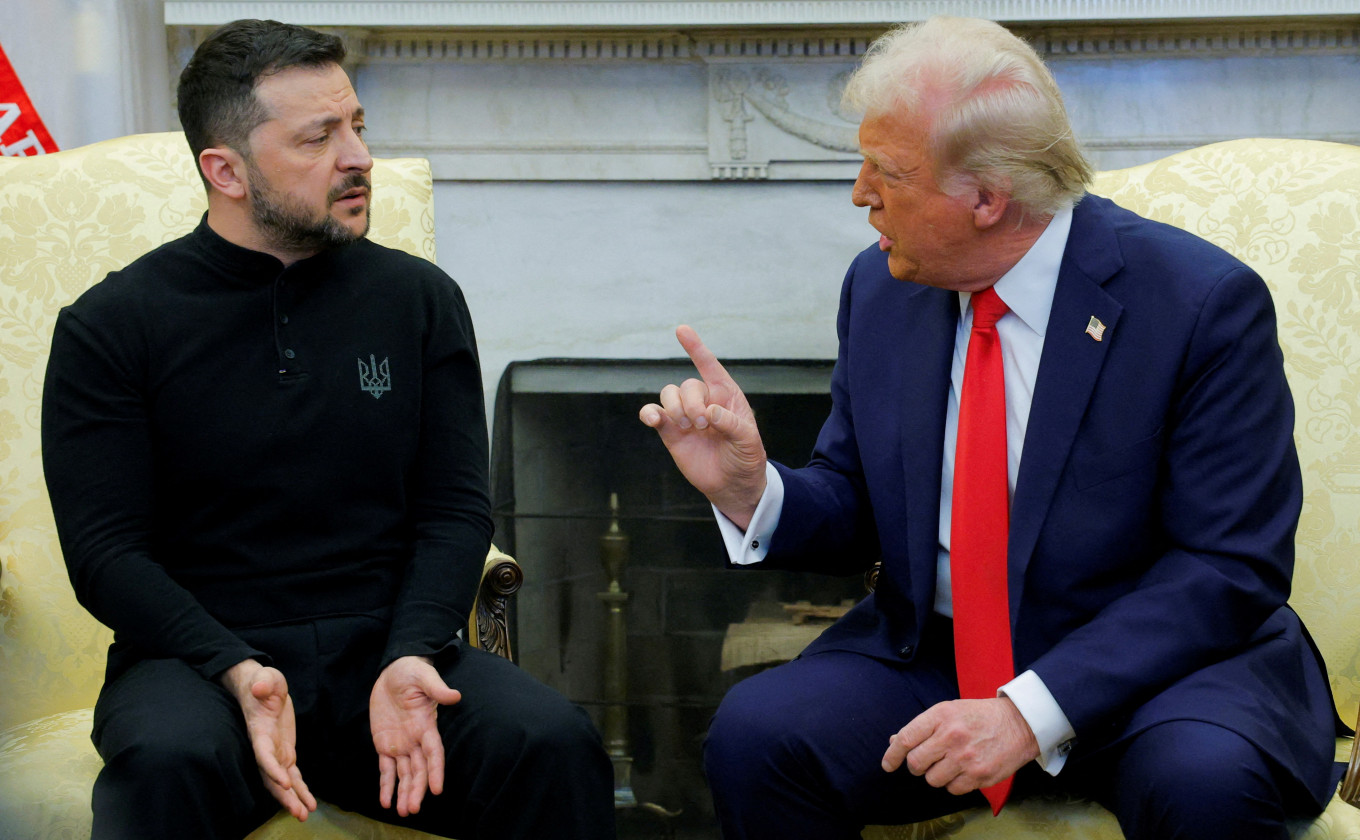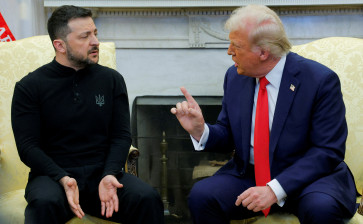Popular Reads
Top Results
Can't find what you're looking for?
View all search resultsPopular Reads
Top Results
Can't find what you're looking for?
View all search resultsTrump and the ghosts of colonialism: A lesson for Indonesia
What Trump has done to Zelenskyy bears similarity to colonial economic arrangements, in which a weaker nation must grant the powerful access to its natural wealth in exchange for protection.
Change text size
Gift Premium Articles
to Anyone
T
he recent confrontation at the Oval Office between United States President Donald Trump and Ukrainian President Volodymyr Zelenskyy revealed a stark reality about global power politics. What was expected to be a diplomatic discussion on ending the war in Ukraine instead became a moment of high-tempered argument.
Trump and Vice President JD Vance criticized Zelenskyy for not showing enough gratitude for US aid and proposed that Ukraine compensate by granting the US access to its valuable rare-earth minerals. The demand signaled a shift from traditional alliances based on shared values to a more transactional approach.
This reminisced colonial practices in the past, when powerful nations justified their influence over weaker states by offering security, aid or economic development while extracting natural resources in return. Although Ukraine is not a colony, the expectation that it must offer mineral rights in exchange for US military aid raises important questions about the persistence of hierarchical relationships in international diplomacy.
The implications of this event extend beyond Ukraine. For Indonesia, a nation rich in natural resources and strategically located in the Indo-Pacific, this development serves as yet another reminder to maintain its economic and political independence. The international system is changing and relationships between powerful and developing nations are increasingly shaped by economic leverage rather than mutual trust.
The White House event reflects a broader shift in how some world leaders view international partnerships. Rather than treating alliances as long-term commitments based on shared security interests, Trump and his allies consider them business transactions. Military aid, economic cooperation and diplomatic support are services requiring tangible returns.
This perspective is by no means new. During his first term, Trump suggested that the US should have taken Iraq’s oil after the 2003 invasion and repeatedly pressured NATO allies to increase their financial contributions.
For Indonesia, this change raises important considerations. If US foreign policy continues to prioritize economic returns over strategic partnerships, what would this mean for Jakarta’s future engagements with Washington? As Indonesia strengthens its defense cooperation with the US in the Indo-Pacific, would Trump demand access to Indonesia’s critical minerals, including nickel, or maritime trade routes in exchange for continued support?



















